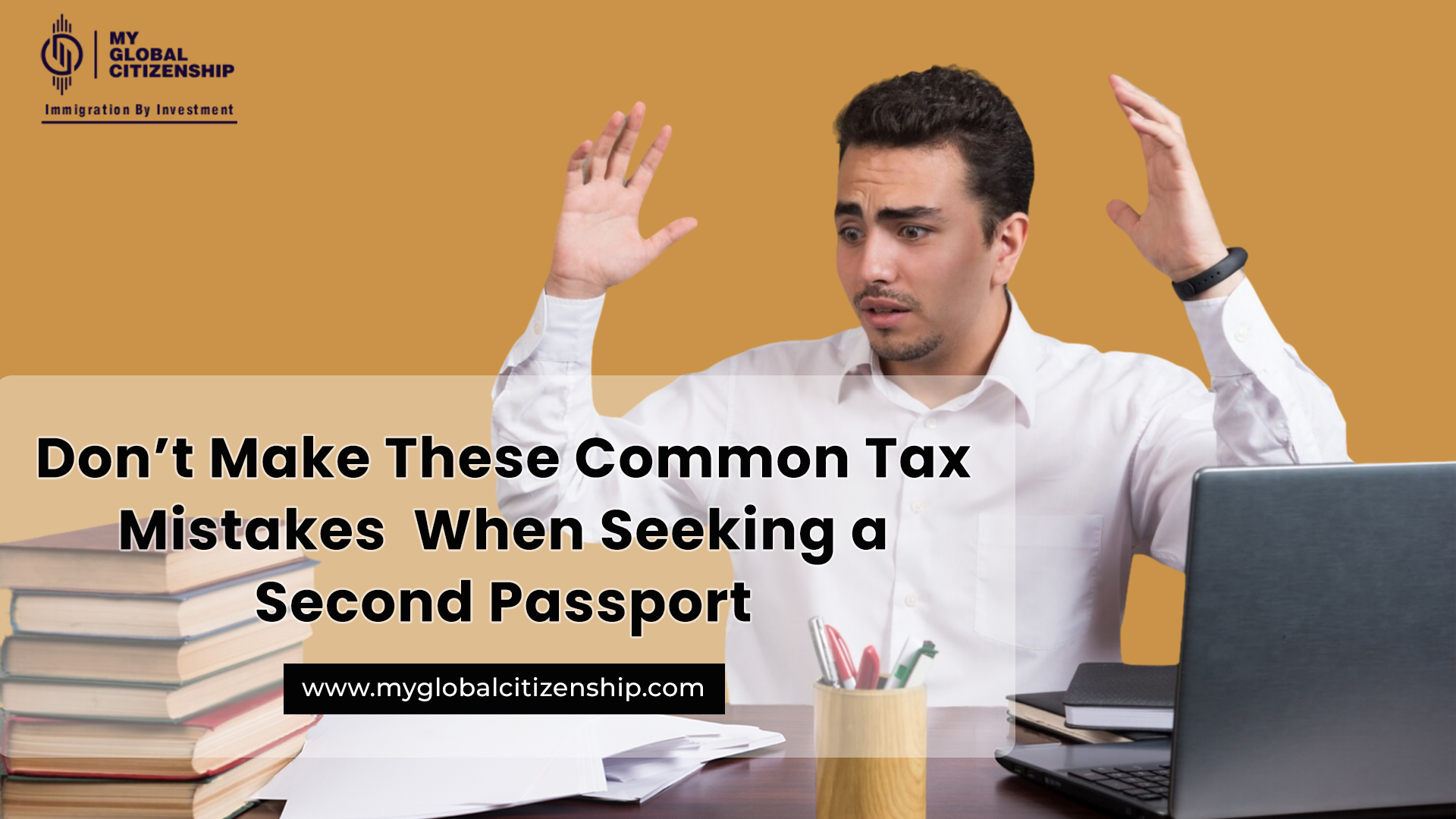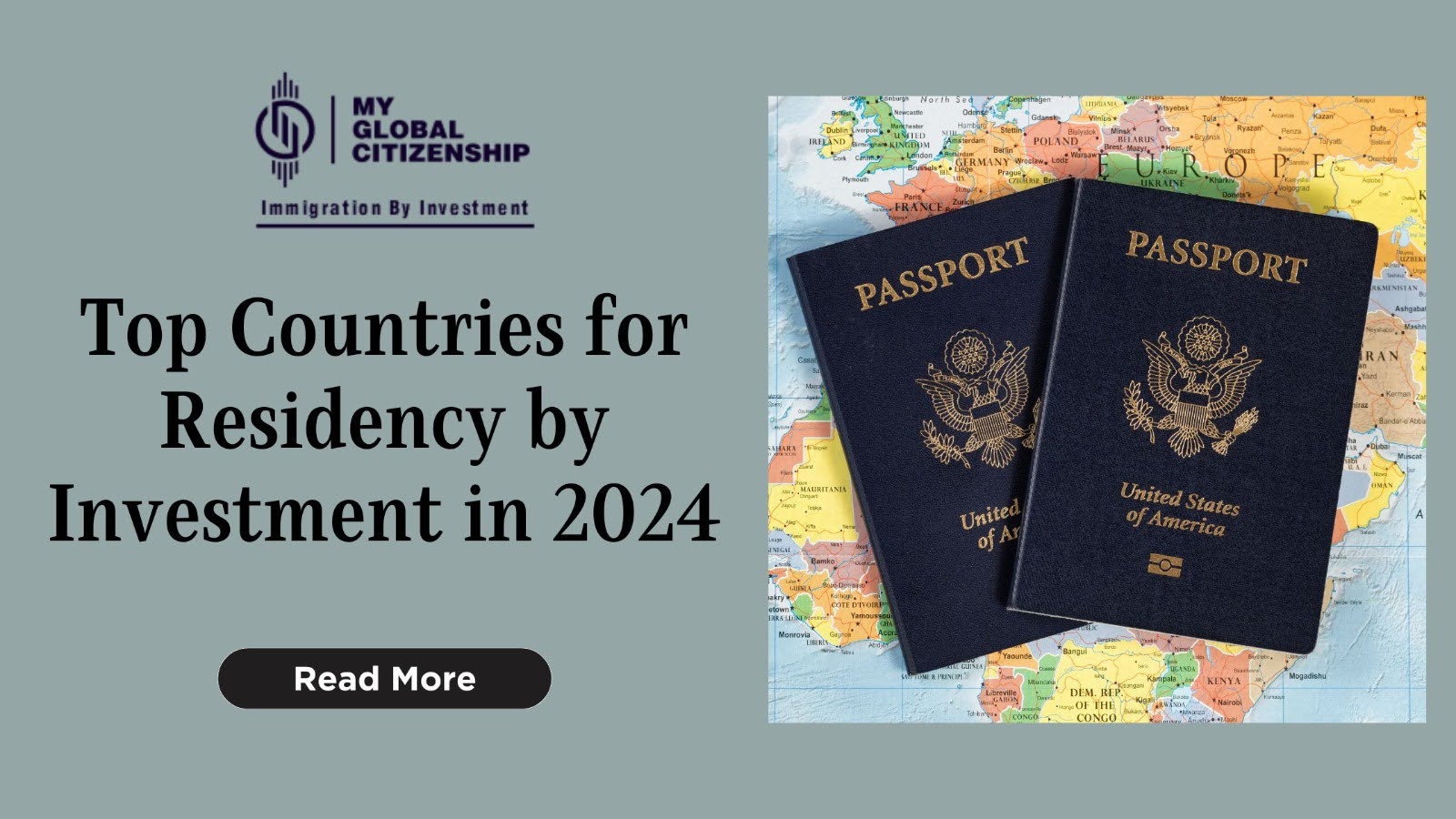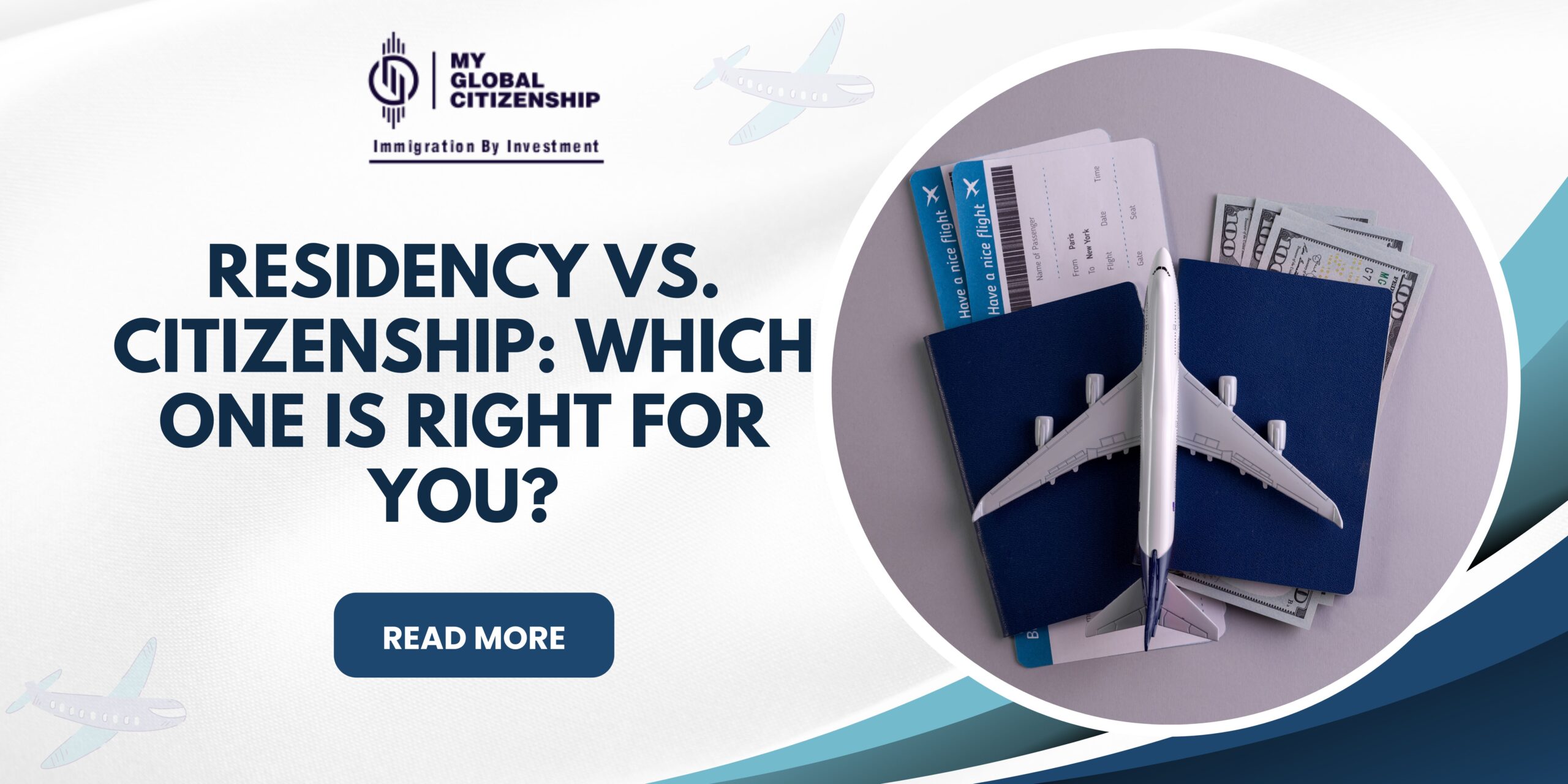Obtaining a second passport through a Citizenship by Investment (CBI) program has become an appealing option for investors seeking enhanced global mobility, expanded business opportunities, and increased personal freedom. However, amidst the excitement of acquiring a second passport, it is crucial to navigate the complex realm of taxes to avoid common tax mistakes that can have severe financial implications and legal consequences. Understanding the tax obligations and pitfalls associated with seeking a second passport is paramount to ensuring a smooth and successful journey.
By making a sizeable financial contribution to a host nation, investors can get a second passport through the notion of citizenship by investment program. While the benefits are undeniable, it is essential to be aware of the tax implications that accompany this process. Failure to comprehend the obligations related to tax laws can lead to penalties, fines, and legal consequences. Additionally, investors often overlook the requirement to report foreign assets acquired during the process, which can result in severe penalties and criminal charges.
Failure to Understand Residency and Tax Obligations:
Acquiring a second passport has far-reaching implications for one’s residency status and tax obligations. It is essential to understand the tax laws and residency requirements of both the home country and the country granting the second passport.
Many investors fail to realize that obtaining a second passport may trigger tax obligations in both jurisdictions. If these requirements are not met, there may be fines, penalties, or even legal repercussions. Seek expert tax guidance to make sure one is informed of the obligations and can successfully negotiate the tax environment in order to avoid these hazards. For instance, Caribbean countries do not pay taxes on capital gains or inheritance. A few of them even pay no income taxes. Income taxes are imposed in Grenada, Dominica, and St. Lucia. While investors who obtained citizenship through Dominica Citizenship by Investment program pay taxes on their worldwide income, citizenship obtained through the Grenada Citizenship by Investment program and Saint Lucia Citizenship by Investment program solely pay tax money made within the nation.
At least 183 days a year are spent in the listed Caribbean nations to be a tax-paying resident so an investor can get a passport but not become a tax resident of the state. Participation in citizenship by investment programs exempts candidates from the requirement that they have to live in the Caribbean for a significant amount of time before or after becoming citizens.
From the above graph, we can see that number of applicants keeps on increasing which resulted in earnings of approximately 362.5 million Eastern Caribbean dollars therefore setting a record of having 23% more than in 2021 and 30% more than in 2020. One of the main reasons is that tax is to be paid only for the income made in the nation which attracts investors for Grenada Citizenship by Investment Program.
Neglecting Tax Reporting for Foreign Assets
One of the common tax mistakes investors make when seeking a second passport is neglecting to report foreign assets acquired during the process. Acquiring a second passport often involves substantial investments, such as purchasing property, establishing businesses, or making financial investments. Many investors overlook the obligation to report these assets and the income generated from them to their home tax authorities. However, tax authorities are increasingly cracking down on undisclosed offshore assets. Failing to report foreign assets can lead to severe penalties and even criminal charges.
In order to maintain compliance and prevent potential legal repercussions, it is imperative to understand the reporting obligations and take into account consulting a tax specialist for advice. An important step forward in American efforts to prevent tax evasion by Americans who keep accounts and other financial assets abroad is the Foreign Account Tax Compliance Act (FATCA). This act is crucial for investors seeking US Citizenship by Investment. FATCA guidelines are still being developed by the Treasury Department and the IRS. According to information available till March 2023, Americans who have a financial stake in or signing power over a foreign financial account are obliged to file a Report of Foreign Bank and Financial Accounts if the total value of all of their overseas accounts exceeds $10,000.
Overlooking Double Taxation Agreements (DTAs)
Holding citizenship in multiple countries can give rise to the concern of double taxation, where the same income is subject to taxation in both jurisdictions. To mitigate this issue, countries often enter into Double Taxation Agreements (DTAs) to avoid investors being taxed twice on the same income. However, investors seeking a second passport often overlook the existence and relevance of DTAs. One can minimize the tax liabilities and prevent the hardship of double taxation by being familiar with the DTAs between their home country and the nation issuing the second passport. Investors can structure their financial affairs in a tax-efficient manner by being aware of the provisions of these agreements.
According to the study EY 2019, citizenship alone is insufficient to guarantee tax residency in a country, hence citizenship by investment does not offer a risk of facilitating tax evasion. A dual tax resident must pay tax to one of the two countries, according to “tie-breaker tests” in DTAs. The tie-breaker tests under the United Nations’ proposed model DTA “do not consider citizenship at all.” Instead, they take into account the person’s primary residence, place of importance, and usual dwelling. The Citizenship by Investment schemes does not help people who want to avoid paying taxes or because they can only grant citizenship, not tax residence.
Tax residency is determined by a person’s centre of vital interests or domicile or the location where they have a permanent intention to reside as evidenced by past or present habitual residence. Therefore, merely being eligible for St. Lucia citizenship by investment program, Dominica citizenship by investment program, or St. Kitts and Nevis citizenship by investment program is not sufficient to make an investor a tax resident of these jurisdictions,” because it is “very rare” for citizenship alone to determine tax residency, with the United States being the most noteworthy exception.
Ignoring Exit Tax and Relocation Costs
When seeking a second passport, investors may overlook the potential exit taxes imposed by their home country when relinquishing their citizenship. On the basis of the value of the assets at the time of exit, exit taxes are frequently determined. Additionally, moving costs, visa fees, and legal fees are just a few additional expenses that may be incurred while shifting to a new nation. Ignoring these prospective expenses and neglecting to plan for them can result in unforeseen monetary burdens. It is crucial to consider exit taxes and relocation costs when planning a second passport journey to avoid any unwelcome surprises. The majority of programs require an investment in order to qualify, hence tax is also involved. Stamp taxes, property taxes, VAT taxes, and other taxes may be incurred while buying real estate in order to obtain an RBI visa unless the country in question has a zero tax rate in one or more of these areas. In these scenarios, investors, like the majority of people, will examine the available tax options and ceteris paribus choose the option with the lowest taxes, which is a tax-avoiding strategy but is not tax evasion.
The above graph shows the number of individuals removed from their native land and the number reported. The expat list includes names of US citizens who have given up their citizenship as well as long-term US residents who have given up their green cards and who either have a minimum net worth of US$2 million or a five-year average of US tax payments that exceed US$178,000. Investors who renounce their US citizenship or permanent residency might anticipate paying an “exit tax” on all of their foreign assets worth more than USD$2 million, valued as if they were sold on the day of renunciation and this information is crucial for investors seeking US Citizenship through Investment.
Conclusion
Acquiring a second passport through a citizenship-by-investment program is an exciting endeavour with numerous benefits. However, it is essential to navigate the tax implications wisely to avoid common tax mistakes that can have significant financial consequences. By understanding residency and tax obligations, reporting foreign assets, leveraging double taxation agreements, implementing tax planning strategies, and considering exit taxes and relocation costs, one can protect their financial well-being and ensure compliance with tax regulations. Seek professional tax advice tailored to specific situations to make informed decisions and optimize tax position while enjoying the benefits of a second passport through a citizenship-by-investment program.
If you still have any queries, connect with our team, and we will be more than happy to assist. Click Here






